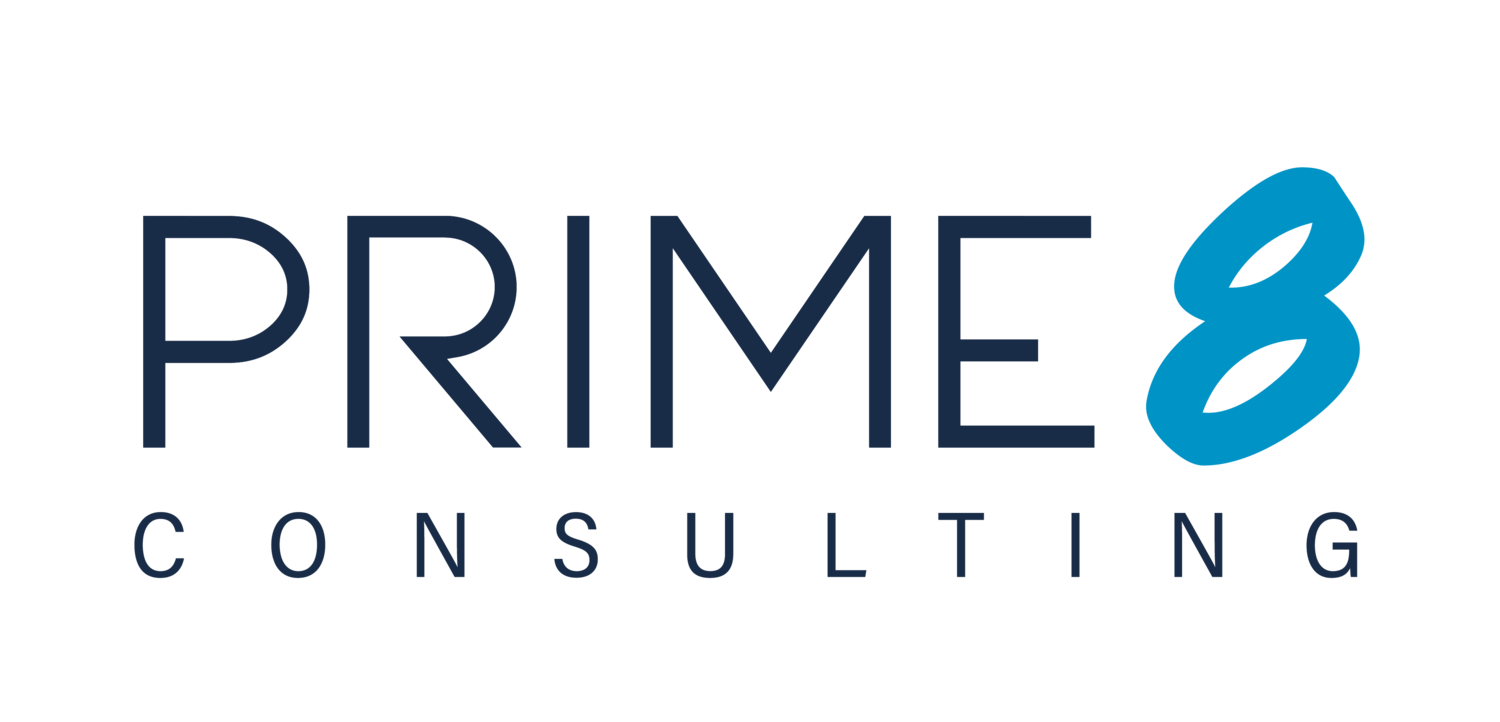6 Steps to Democratize Data and Improve Business Operations
Highlights
Data democratization requires a well-planned strategy, which we outline in a series of six steps.
Democratizing data doesn’t end with implementation; we also offer tips on how to make the most of it.
The expertise of a business intelligence consultant can help organizations become more intelligent and data-driven.
In a previous article, we explained why data democratization is a must for businesses to thrive in an increasingly data-centric world. However, knowing the benefits of business intelligence is one thing; undergoing the data democratization process is quite another. It requires a well-planned strategy that’s executed with timing, precision, collaboration, and empathy.
Let’s explore the key steps in democratizing data for intelligent business operations.
1. Gain Leadership Buy-In
Creating any widespread cultural change starts at the top. We have worked with numerous organizations where bringing leadership on board from the beginning paved the way for a smooth and effective implementation process. Because of the shift in mindset and processes and the investment in technology and tools data democratization requires, this is an imperative step in the democratization process.
That’s not to say that the process is easy; this step requires research and groundwork. Hiring a consulting firm with experience in kickstarting business intelligence projects ensures you’re capturing the right information early on so that the project can move forward.
2. Discover the Existing Data Landscape
Organizations add data to their ecosystem every day. For data to be accessed and managed, you first need an unveiling of where data lives, how it’s collected, and why that data matters.
Prime 8 consultants are experts at taking stock of the existing data landscape, including any lack of accessibility by interested parties. We apply that process to present-day data as well as legacy data, which is historically difficult to access and use.
Areas we focus on include:
Data sources
Structure
Interoperability between current systems and legacy platforms
Data needs of each department/role
The need for data integration tools
How data is accessed in terms of tools, roles/permissions, and location (e.g., remote cloud-based access, on-premise applications)
This exploratory phase allows us to uncover inefficiencies or fragmented systems that inhibit data’s use and value. Knowing the problems that exist can help to surface new, better solutions.
3. Collaborate to Link Data with Value
Creating a data-driven culture means creating an environment where all stakeholders can benefit from an organization’s data. You need to travel a two-way street here: Learn directly from stakeholders what they want from the data AND share with those same stakeholders the possibilities that already exist that they might not be taking advantage of.
Get their input on the data that matters to them, what they already have access to, and what they’d like to unlock and why. We have seen firsthand how involving departments and teams in the process can unlock the true value of an organization's data.
By engaging stakeholders, understanding their data needs, and sharing potential use cases, we create a team effort that empowers each stakeholder and drives a data-driven culture.
4. Establish Data Governance Protocols
Before your data can be readily accessible to everyone, you must have structure and governance protocols in place that define how data looks and functions. Without data governance, the risk of non-compliance, poor structuring, and erroneous decision making substantially increases.
Data governance requires:
Data security: Ensuring data accessibility is secured against third-party threats or unauthorized first-party access.
Data quality: Ensuring data is accurate, complete, and formatted according to a predefined structure.
Data privacy: Managing how data is collected, shared, controlled, and used.
Prime 8 consultants specialize in helping organizations establish data governance protocols that ensure all of these crucial aspects, helping companies mitigate risks, make informed decisions, and enable data access for all stakeholders.
5. Create Accessibility to Data
With the groundwork laid, your company can bridge the gap between its current reality and what a data-driven culture should look like. We have helped companies invest in new data tools and platforms, build user-friendly BI dashboards, and improve existing systems and processes to be more user friendly and impactful.
By making data more accessible, organizations can empower their teams to leverage data effectively and drive meaningful business outcomes
6. Promote Data Training and Best Practices
Enabling data accessibility is just part of the equation. Training and education play a crucial role in ensuring stakeholders can effectively use and extract value from their data systems in their daily work.
Create a library of self-service resources stakeholders can refer back to if they have questions, then commit to ongoing training and education. You’ll also want to build in ways for stakeholders to share ideas for improvement.
Business intelligence consulting gives organizations a shortcut to developing a data-driven culture. Our consultants can apply their experience with this framework to your data democratization efforts to give you a trackable, measurable process that shows your progress and impact throughout its adoption.
Your Data Is Democratized: Now What?
Democratizing data gives end users new capabilities, skills, and opportunities to improve the organization’s performance. The priority now shifts to application — how can companies leverage their data-driven cultures to set new benchmarks for success? Let’s look at a few possibilities.
Align Brand Voice More Closely to Target Audiences
More data provides a more complete picture of your ideal customer. With better profiles, companies can learn more about their target audiences and align their brand voice in ways that cater to their needs and personalities.
Understand Next Best Actions Throughout the Customer Journey
Capturing more data throughout the customer journey shows companies where their best customers come from, where prospects are losing interest, and common denominators of paying customers, among other insights. We’ve learned the value of using customer journey data to learn more about why some customers convert and others don’t, then learn what next best actions should be taken to create more paying customers.
Pinpoint and Eliminate Inefficiencies from Key Business Operations
Collecting and analyzing data from multiple sources gives companies more insight into their business operations. With more data, companies can more easily spot inefficiencies that are negatively impacting the business. These inefficiencies can be customer-facing (e.g., customers complaining about slow delivery times or a clunky website experience) or internal (e.g., discovering redundancies in work).
Knowing a problem exists is the first step toward resolution. From there, companies can be more informed and take the appropriate next steps.
Innovate Through Rapid Prototyping and Product Incubation
Creating a more complete picture of a process or idea allows stakeholders to move forward with confidence. This is particularly notable when developing new products or services. Companies can trust data to inform their product ideation by knowing what their customers need or want from them. They can analyze feedback, surveys, and other data from multiple sources at scale, saving countless hours in R&D while better meeting their customers’ needs.
Work with a Consultant to Build Better Business Ops
Becoming a data-driven culture isn’t about collecting more data; it’s about making sense of your data and using it to drive results. Data democratization is one step forward on the journey to becoming a more intelligent organization, one whose learning curve can be shortened with the help of a business intelligence consultant.
Consultants can help with business intelligence by bringing turnkey skills and expertise to the table. With past experience in helping enterprises democratize data, consultants know the right questions to ask to move the process forward. They also have experience with data tools and platforms that will provide the foundation for a data-driven workplace.
Consultants can support data projects of any size and scope, whether across a single function or team or an entire enterprise. For example, one Prime 8 consultant implemented a low-code onboarding tool that saved our back office countless hours while allowing us to assign new consultants to clients faster. This simple solution catered to multiple decision makers in a low-lift manner.
Trading a manual approach for an automated process driven by Power BI allowed us to onboard more consultants in less time, share the hiring status with 15+ stakeholders, and follow up with candidates in a timely manner. This was a single use case of data democratization, but its impact delivers real organizational value every day.
The value doesn’t end there. Along with practical and technical skills, consultants also bear soft skills in interpersonal communication, change management, and team collaboration that are necessary for any large-scale enterprise project. They support data democratization by ensuring internal employees embrace its value and have the resources they need to leverage data.
For More Information
To learn more about Prime 8’s approach to data democratization, read our blog post Centralized Data Solution Saves Money and Grows Business.
Partner with Prime 8
Our experts specialize in data analysis, integration, and visualization to help businesses unlock the full potential of their data assets. A Prime 8 consultant can provide the necessary guidance and support for a successful data-driven transformation, empowering your business to thrive in today's data-centric world.
Learn more about how we do it — get in touch today!












